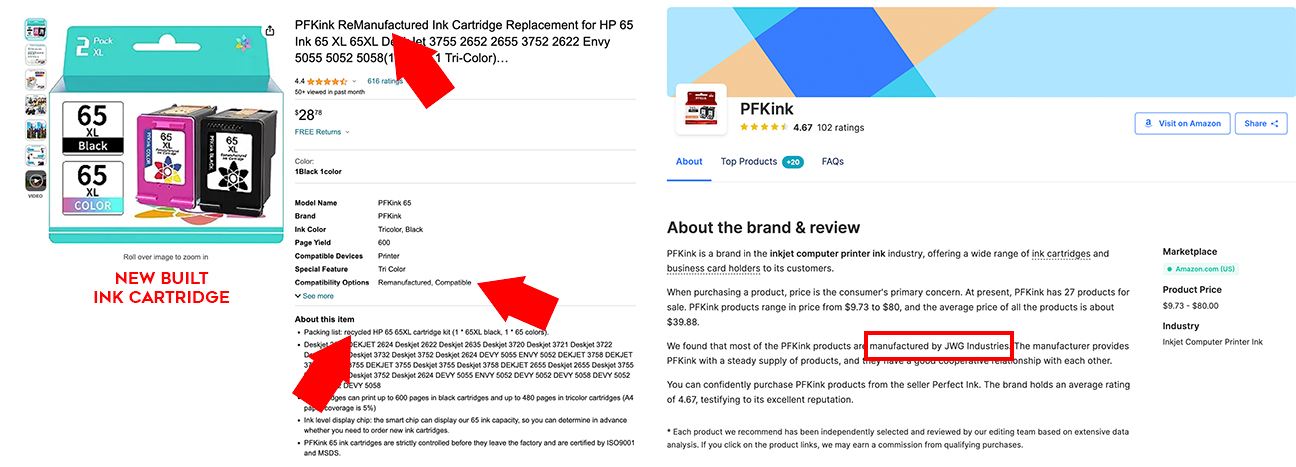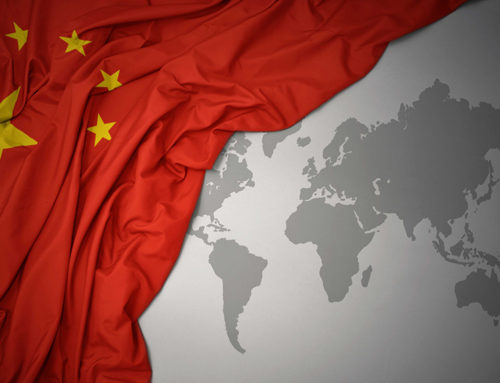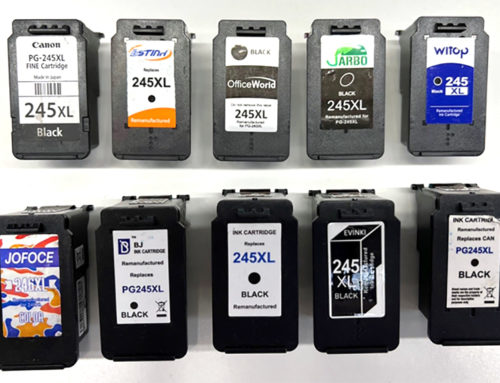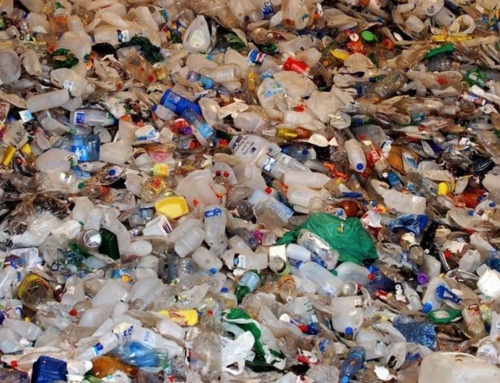Section 230 of the Communications Decency Act is a controversial provision that grants online platforms, including e-commerce giants like Amazon, a level of immunity from legal liability for content posted by third-party users on their platforms. While this legal shield has played a crucial role in fostering innovation and free expression on the internet, it has also raised concerns about its potential negative impact on consumers when platforms fail to adequately address false claims, misleading information, and mislabeling by sellers – and amazon’s profit from neglecting those issues.
In the printer ink industry, it’s a prevalent issue that China’s compatible ink cartridge manufacturers market their products as both “recycled” and “remanufactured,” often blurring the lines between these two distinct processes. This goes against the listing policies posted on Amazon. This marketing strategy allows them to tap into the eco-conscious market while potentially misleading consumers about the true nature of their products. The root causes of this problem are the lack of effective policing and accountability by Amazon to rectify such listings or take action against these offenders.
Here’s how this issue unfolds:
1. Blurring the Lines Between “Recycled” and “Remanufactured”: In the printer ink industry, “recycled” and “remanufactured” are two different terms with specific meanings. “Recycled” typically refers to the practice of collecting and reusing certain components or materials from used ink cartridges, while “remanufactured” involves disassembling, cleaning, repairing, and refilling cartridges to meet original manufacturer specifications. Some manufacturers incorrectly label their products as both “recycled” and “remanufactured,” which can confuse consumers who are trying to make environmentally conscious choices.
2. Lack of Policing and Accountability on E-commerce Platforms: Amazon and other e-commerce platforms serve as marketplaces for a vast array of products from different sellers, including those producing compatible ink cartridges. Policing every product listing for accuracy and compliance appears impossible and sellers take advantage of this gap in oversight with little to know resulting actions to meet compliance.
3. Misleading Marketing Tactics: Sellers who label their products as both “recycled” and “remanufactured” do so intentionally to broaden their customer base. Consumers seeking eco-friendly options may be more likely to purchase products they believe are environmentally responsible. However, when these products do not meet the promised standards, it can lead to dissatisfaction and mistrust of the entire legitimate remanufacturing industry.
4. Impact on Consumer Trust: Misleading marketing tactics erode consumer trust in online marketplaces and the printer ink industry as a whole. When consumers feel that they cannot rely on product descriptions, they may become hesitant to make purchases – even of those items proven to be remanufactured and recycled, potentially harming their overall online shopping experience and causing harm to the ink cartridge remanufacturing industry as a whole.
Consumer advocacy groups and concerned individuals have called for greater accountability and transparency on e-commerce platforms. They argue that platforms should take more proactive measures to verify the accuracy of product listings and descriptions, especially when they involve claims related to environmental sustainability. Those platforms hide behind Section 230.

Amazon has faced criticism for allowing counterfeit and potentially unsafe products to be sold on its platform. While they claim to take steps to police the marketplace, Amazon’s use of Section 230 as an excuse not to take action and remove offending product listings can be seen as a strategy. It allows the company to benefit from high profit margins on the sale and distribution of low-quality, third-party, non-recyclable single-use ink cartridges that ultimately end up in landfills.
As Amazon allows third-party sellers to list and sell their products on its platform, they are taking a percentage of each sale as a fee and facilitating the exchange of merchandise for money – this often includes warehousing product, picking and packing, shipping and dealing with returns. As the biggest part of the transaction, this should mean that they hold the biggest accountability. In the case of low-quality ink cartridges, Amazon benefits from high profit margins because these products are cheaper to produce and are sold at competitive prices. Consumers looking for lower-cost alternatives are unknowingly led to purchase these offending cartridges – swayed by Amazon’s marketing and anti-competitive practices in quest for profit.
Section 230 has granted Amazon a shield of legal protection, allowing the company to operate its marketplace with limited accountability for the products it distributes. While this legal immunity serves Amazon’s interests in terms of profit margins, it also enables the company to undermine the principles of a circular economy with little regard for the damaging effects caused by the products it facilitates.
A circular economy emphasizes sustainability, encouraging the reduction, reuse, and recycling of products to minimize waste and environmental harm. However, Amazon’s approach, fueled by Section 230 immunity, permits the distribution of low-quality, non-recyclable products that often end up in landfills after single use. This approach not only contradicts the ethos of a circular economy but also contributes to environmental degradation and the proliferation of electronic waste.
As consumers and advocates for responsible business practices, it’s crucial to recognize the broader implications of Section 230’s role in Amazon’s operations. While the company reaps the benefits of high profit margins, we must remain vigilant and demand greater transparency, accountability, and responsible product curation from Amazon and other online platforms. Ultimately, it’s our collective responsibility to promote a circular economy that values sustainability, reduces waste, and protects our environment for future generations.






